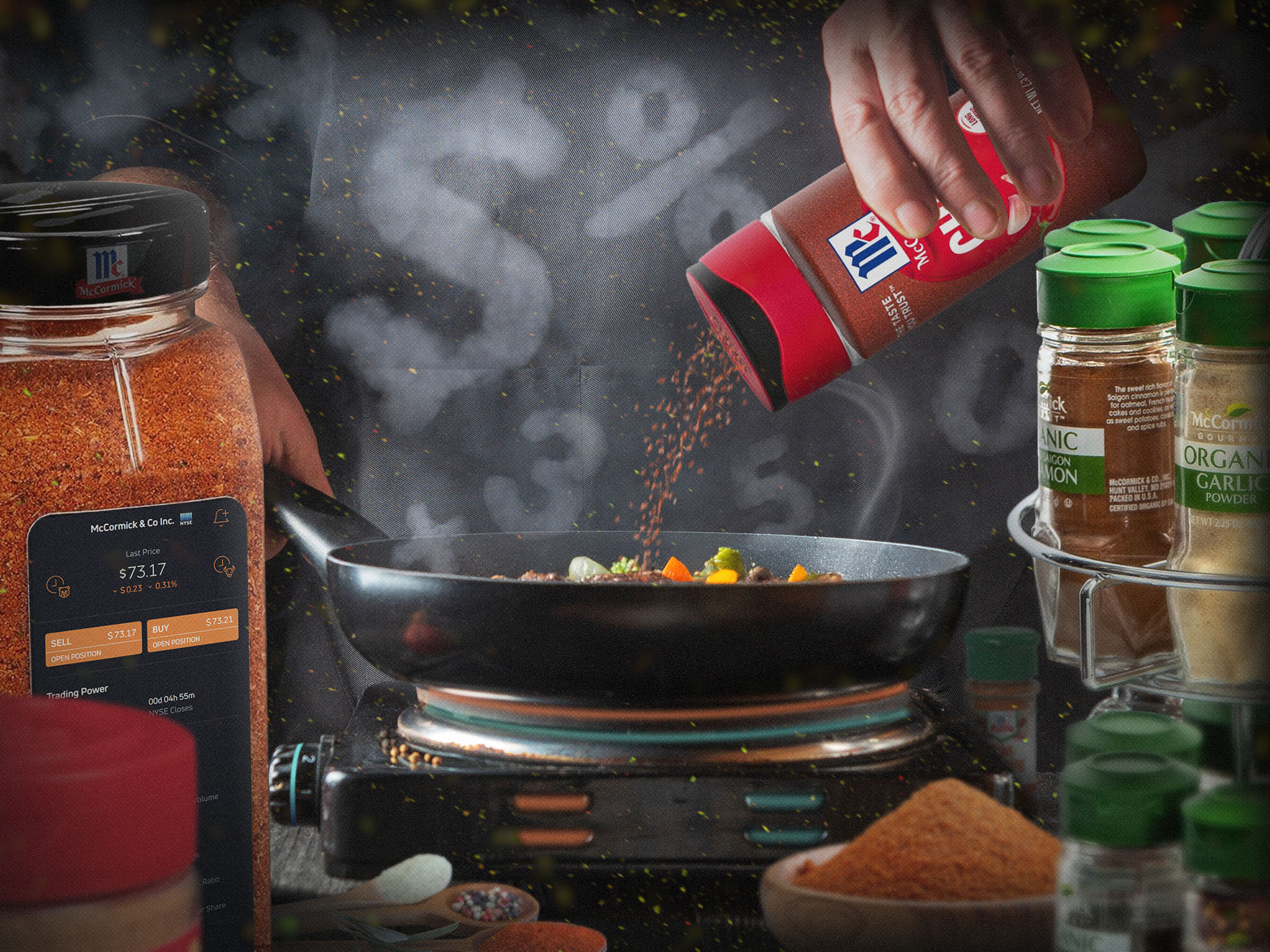McCormick may have found the right recipe amid economic uncertainty

McCormick (NYSE: MKC), the dominant global purveyor of spices and seasonings, may not have a hot story to tell now. But mild may do the trick in a time of consumer retrenchment. Personal spending dipped 0.1% in May.
Yet McCormick, one of the oldest U.S. companies at 136 years, has managed to withstand the decline. Its revenue rose 1% in the second quarter (ended May 31) from a year earlier, driven by a 1.3% increase in volume. Prices gained just 0.3%, as consumers are showing zero tolerance for inflation. Organic sales, which are based just on existing operations, gained 2%.
Meanwhile, the stock has climbed 4.3% over the last 12 months, far behind the S&P 500’s 11.8% gain.
McCormick has two divisions: consumer, which sells its products through grocery stores and the like, and flavor solutions, which sells to food manufacturers and foodservice customers. The consumer side accounts for 60% of the company’s sales.
In the second quarter, consumer sales climbed 3%, while flavor solutions sales were unchanged. That could reflect consumers’ preference of cooking at home over eating out, allowing them to save money.
‘Competing for calories’
And when consumers choose to cook for themselves, McCormick doesn’t have to worry about what food they select. “We’re not competing for calories. We’re flavoring them,” the company’s CEO Brendan Foley said in the company’s second-quarter earnings call.
“Whether it’s spices and seasonings, sauces or condiments we enable better, more flavorful meals without adding complexity or cost,” he said. And analysts say consumers appreciate the health value of some of McCormick’s products.
McCormick accounts for about 20% of the $17 billion global food-flavor market, exceeding its closest challenger by a factor of four (likely Ajinomoto of Japan).
To be sure, analysts say tariffs could put a dent on the company “The global trade environment is increasing the cost of agricultural ingredients we source from outside the U.S., which is impacting our cost of sales,” Foley acknowledges.
But it’s not a major issue, he said. “We have a global manufacturing footprint designed so that products sold within a region are made locally within that region.” Thus the hit from tariffs comes primarily through importing agricultural raw materials, Foley said.
Tariff impact
But its competitors face the same problem, he notes. And McCormick is trying alternative sourcing of raw materials when it can get them cheaper. McCormick CFO Marcos Gabriel predicts the company will face tariff costs of $50 million this year, or 7% of its 2024 revenue.
For the fiscal year as a whole, McCormick projects revenue growth of zero to 2% and earnings-per-share growth of 2% to 4%.
Morningstar analyst Erin Lash is bullish on the company, seeing it with competitive advantages for at least 20 years.
“Its spices and seasonings lineup spans budget-friendly options, as the largest domestic private-label manufacturer, to more premium fare, allowing it to weather volatile economic conditions,” she wrote. Moreover, it can cut spending and raise prices if necessary.
